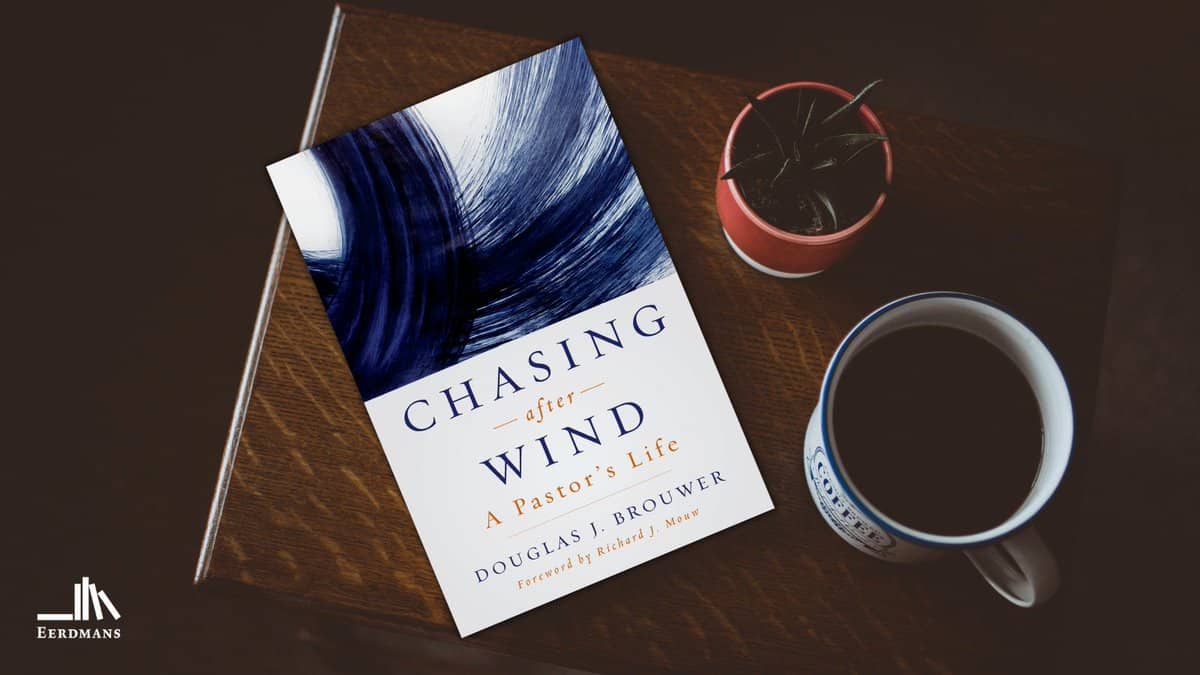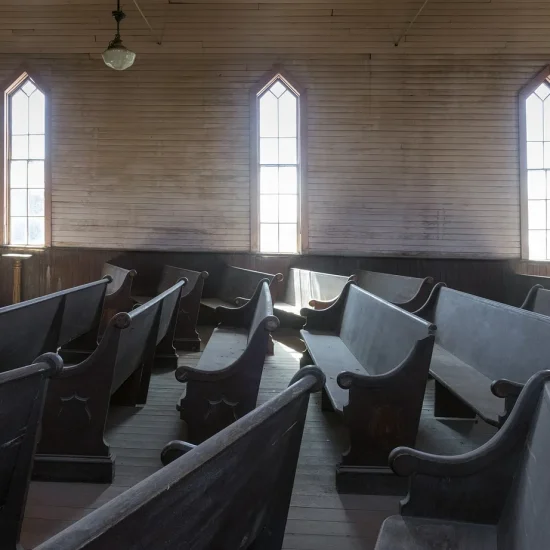

CHASING AFTER WIND: A Pastor’s Life. By Douglas J. Brouwer. Foreword by Richard J. Mouw. Grand Rapids, MI: Wm. B. Eerdmans Publishing Company, 2022. Xiv + 228 pages.
What does it mean to be a minister or pastor? Is it a career, just like any other career? Or is it a vocation, a calling, that is unique and different? Those of us who have spent time in the ministry of the church will probably answer these questions differently. There was a time, back in the 1960s and 1970s when many American clergy (mostly men at the time) embraced professional status, just like medicine or law. Organizations like the Academy of Parish Clergy emerged that sought to provide professional certification. Denominations also tightened standards for clergy, both for ordination and for continued standing. While clergy seem less inclined to talk about professional status, the expectations remain. So how do clergy see themselves?

Robert D. Cornwall
Clergy memoirs are interesting reading, at least for those of us who are clergy. They’re usually written late in one’s ministry or after retirement. Chasing after Wind is the post-retirement of Douglas Brouwer, a longtime Presbyterian (PCUSA) pastor. He offers up this memoir as a means of taking stock of his own o his career/vocation. He confesses throughout the book that he looked upon these two words—career and vocation—at times as synonyms and at other times having different connotations. As for him, he suggests that for much of his ministry he viewed what he did in career terms. In that regard, he speaks of ambition and the desire to become someone of importance. Part of this view of his ministry is rooted in his personality, having grown up in a Dutch Reformed community that emphasized hard work and pursuit of success. While he left behind that context, having grown up in the Christian Reformed Church, he took that understanding of life into his ministry in the Presbyterian Church. The message he imbibed growing up Christian Reformed was reinforced by his seminary training at Princeton Theological Seminary. When he arrived at Princeton, choosing it over both Calvin Theological Seminary and Fuller Theological Seminary (my alma mater) he was told that there would always be a place in the ministry of the church for those who were good at their job. He also learned that the goal for those who were good at their job was to become the pastor of a large and important congregation, like Fifth Avenue Presbyterian Church in New York City. With this message in mind, he began pursuing excellence and success in ministry. That pursuit defines much of the story told in this book.
The story begins as one might expect in childhood. From there we move on through college to seminary to ordination in the Presbyterian Church (later to become the PCUSA). He didn’t see ministry as his primary calling until after he arrived at Princeton. I can identify as I didn’t envision being a pastor either when I arrived at my seminary (I envisioned a career in theological education as a church historian and resisted the idea until I ended up serving a congregation). So, when he went to seminary, he thought his career path would take him into publishing, since he enjoyed writing and editing, and was proficient at it (as demonstrated in this memoir). It was only near the end of his seminary career at Princeton, when he had to take an internship in a church, that he finally discerned a call to pastoral ministry. That call was confirmed in his first post-seminary ministry opportunity. He began ordained ministry serving as an associate minister in a large Presbyterian church served by a senior pastor who was interested in guiding him along the path toward success in ministry. There he learned much about being an effective pastor.
From this first post-ordination ministry opportunity, Brouwer moved on to bigger opportunities in churches where he was able to build and sometimes reclaim congregations needing guidance. Not all of these experiences were positive or pleasant, but he was committed to this career, even if some of the moves ended up being lateral ones. He confesses that his commitment to being successful led him to refrain from taking controversial positions on matters such as LGBTQ inclusion. He has remorse for this but understands that to do so might have undermined his success.
In many ways, this is the story of ambition and success. Taken together, he had success, but at what cost. The title of the book speaks to the questions raised by the path taken. He draws the title from one of his Grandmother’s favorite passages of Scripture. That passage comes from Ecclesiastes 2:11, which speaks of “all that my hands had done and the toil I had spent in doing it and . . . all was vanity and a chasing after wind” (p. 6). He opens the book by declaring “I was a Presbyterian Pastor for forty years. I loved most of it, barely tolerated some of it, and was grateful to be finished with much of it” (p. 3). These two revelations suggest what many clergy have felt at the end of their ministries. There were good times and not-so-good times, but was it worth it? As you read this memoir you get the sense that while there is much to treasure there is also a certain sense of guilt or remorse for the path taken. He also reveals, to an extent, that he looked down on those who didn’t follow his path. That is, they didn’t commit themselves to the goal set before him by his seminary and colleagues to become the pastor of a large church. He managed to do that, of course, and some of that edge is present in the book. As someone who spent an entire ministry (career?) in small churches, at times I felt very small reading the book. I felt as if I might not measure up. Then again, I didn’t spend 60 to 80 hours a week on the job and ignore my family. I did take my full vacations and even two sabbaticals. In other words, I didn’t pursue success in the same way, nor did I achieve it. But as I read to the end, I wondered if he might find my path more inviting?
I don’t want to say too much about the book’s contents so as to spoil the surprises. He tells stories about seminary and ministry assignments. Some are good memories, and others are not so good. I think that despite a certain amount of regret about certain paths taken, he’s comfortable with his legacy. I’m not sure he would recommend younger clergy to take his path, so this could be a warning against diving too deeply into institutionalized ministry. It also speaks to a sense of disillusionment with the institutionalized church that many of us who have taken the journey feel. While my denomination isn’t as institutionalized as the Presbyterians, we have plenty of institutions to deal with.
As a recently retired pastor, who still enjoys preaching and teaching, along with writing, I identified with much of his journey (just not the pursuit of large churches as I never took those opportunities). I didn’t take the same path of success he did, but I too felt the pressure to be more than I was. A book like this gives those of us who are clergy the opportunity to look at the nature of our ministry lives. Younger clergy will benefit if they can see this as a call to be wary of the ministry treadmill. Perhaps Fifth Avenue Presbyterian or its denominational equivalent isn’t the end-all. As for retired clergy, like me, Brouwer’s Chasing the Wind can help us look back and take stock of things. There will be things we regret and things we treasure. For non-clergy, this could give insight into the clergy life, and may help congregations better support their ministers so they don’t end up chasing after the wind!
This review originally appeared on BobCornwall.com.
Robert D. Cornwall is an ordained minister in the Christian Church (Disciples of Christ). Now retired from his ministry at Central Woodward Christian Church (Disciples of Christ) of Troy, Michigan, he serves as Minister-at-Large in Troy. He holds a Ph.D. in Historical Theology from Fuller Theological Seminary and is the author of numerous books including his latest books: Called to Bless: Finding Hope by Reclaiming Our Spiritual Roots (Cascade Books, 2021) and Unfettered Spirit: Spiritual Gifts for the New Great Awakening, 2nd Edition, (Energion Publications, 2021). His blog Ponderings on a Faith Journey can be found at www.bobcornwall.com.






